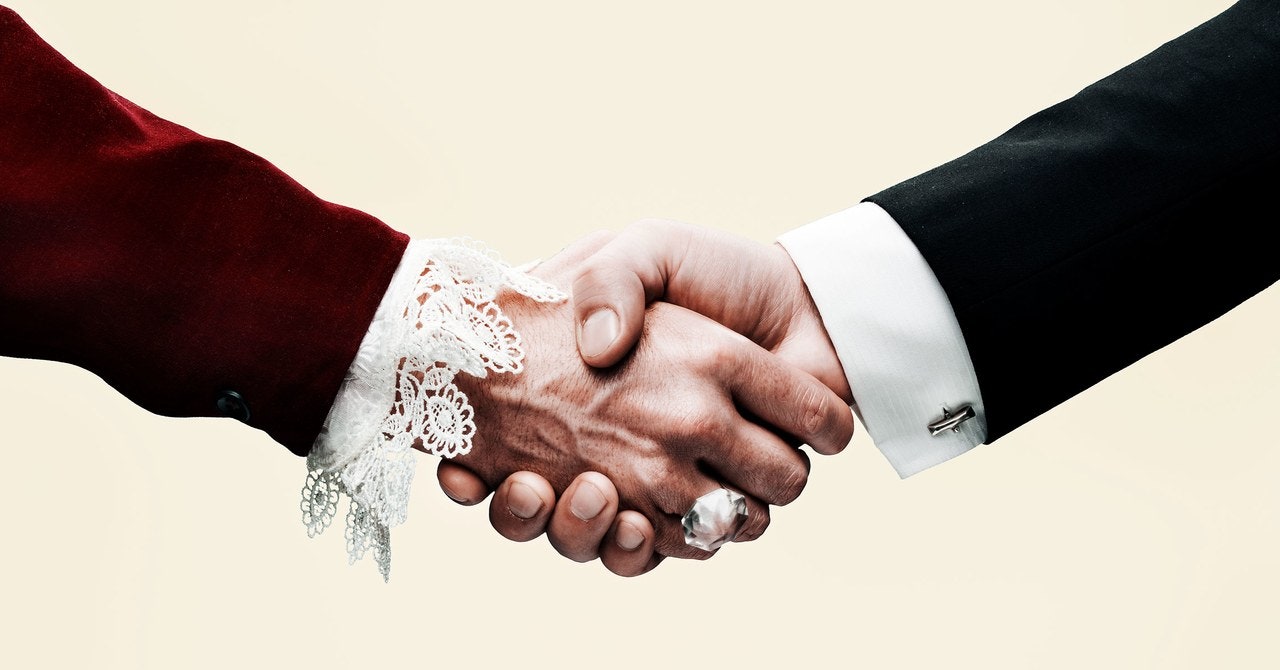In 1439, as the bubonic plague swept across Britain, King Henry VI banned the practice of kissing on the cheeks when greeting someone. To this day, Brits are less likely than our European neighbors to opt for a peck—instead favoring the firm handshake.
Wired UK
This story originally appeared on WIRED UK.
But even that seems under threat in the age of coronavirus. The last few weeks have seen a number of public health organizations advising people to avoid shaking hands as a greeting. The England cricket team are opting for fist bumps instead of handshakes before games. Canadian public health officials recommend an ‘elbow bump’ or a friendly wave. Videos (albeit slightly tongue-in-cheek ones) have emerged from China and Iran showing resourceful citizens going in for a handshake and then thinking better of it and deciding to bump feet instead in a move dubbed the ‘Wuhan shake’.
A few years ago, refusing a handshake would have been the ultimate social snub, but now it’s becoming more and more acceptable. In the Scottish Premier League, teams have been forgoing the traditional pre-match handshake entirely, and German chancellor Angela Merkel was recently filmed pulling out of a handshake with a diplomat.
The rate of change in human behavioral rituals like these is accelerating, according to Sheryl Hamilton of Carleton University in Ottawa. In her joint research with anthropologist Neil Gerlach, Hamilton argues that we’re now living in an era of heightened disease awareness she calls ‘pandemic culture,’ and that it’s changing the way we hold ourselves in public and interact with each other in subtle ways. “We’re more attentive of surfaces and that every surface we touch in our daily lives is covered in microbes,” she says.
Hamilton thinks it’s unlikely that something like an elbow bump will ever emerge as a se

